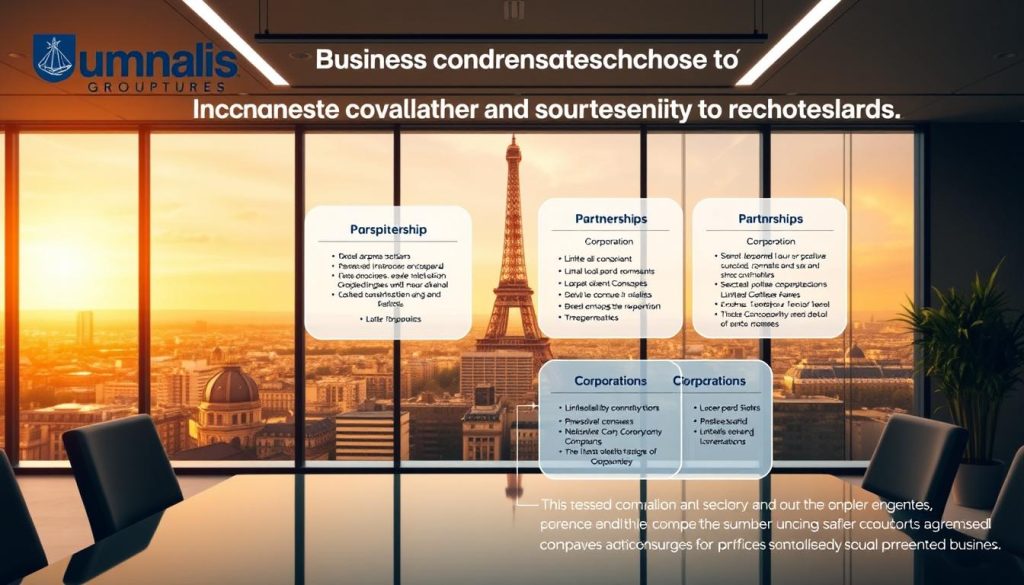Imagine waking up every morning knowing your time is truly yours. No rigid schedules. No office politics. Just the freedom to build a career that fits your ambitions and lifestyle. For many professionals in France, this vision is not just a dream—it’s a reality shaped by smart choices and supportive systems.
France stands out as a haven for self-employed professionals, blending high living standards with strong legal safeguards. Whether you’re a consultant, designer, or developer, the country’s framework empowers you to focus on growth while minimizing financial risks. Tools like income calculators simplify planning, letting you forecast earnings with precision.
What makes this path rewarding? Flexibility to set your rates. Control over projects that align with your values. Opportunities to collaborate globally while enjoying France’s cultural richness. And with platforms like en.umalis.fr, navigating taxes and regulations becomes effortless.
This guide will show you how to leverage these advantages while avoiding common pitfalls. Let’s explore how to turn independence into stability—one strategic step at a time.
Table of Contents
Key Takeaways
- France offers robust legal protections and incentives for self-employed professionals.
- Flexible work hours and project selection empower career autonomy.
- Online tools like income simulators simplify financial planning.
- Local laws prioritize stability for freelancers and consultants.
- Global collaboration opportunities complement France’s high quality of life.
Introduction: The Independent Contractor Landscape in France
France’s thriving freelance ecosystem blends entrepreneurial freedom with robust support systems. Over 1 million self-employed professionals contribute to the economy, supported by clear regulations and cultural respect for work-life balance. This environment allows you to craft a career tailored to your skills while enjoying predictable income streams.
What Does It Mean to Work Independent in France?
Working independently here means designing your professional path without traditional employment constraints. Unlike salaried employees, you:
- Choose projects aligned with your expertise
- Set rates reflecting your market value
- Manage tax obligations through simplified regimes
French law protects this autonomy by emphasizing clear client agreements and preventing undue control over your methods. Tools like URSSAF’s income simulator help forecast earnings accurately.
The Appeal of Freelancing and Self-Reliance
Professionals gravitate toward freelancing for its unique benefits:
- Access to global clients while residing in Europe’s cultural hub
- Social security coverage comparable to traditional employees
- Tax deductions for home offices and professional expenses
Platforms like en.umalis.fr streamline administrative tasks, letting you focus on growth. As companies increasingly embrace hiring independent talent, understanding client expectations becomes vital for long-term success.
Next, we’ll explore how to navigate legal definitions and business structures to solidify your career foundation.
Understanding the Legal Definition of an Independent Contractor
France’s labor laws meticulously outline what separates contractors from traditional employees. Clear classification hinges on three pillars: autonomy in task execution, control over work methods, and absence of hierarchical supervision. These rules protect both professionals and clients by defining the boundaries of the working relationship.
Key Criteria: Absence of Subordination and Autonomy
French courts prioritize autonomy when assessing contractor status. You must demonstrate:
- Freedom to set schedules without client-imposed hours
- Use of personal tools or equipment for projects
- Authority to decline assignments without penalties
Article L. 8221-6-1 of the Labor Code penalizes misclassification with fines up to €45,000 per worker. Clients cannot dictate daily workflows if they want to maintain compliant service agreements.
Comparing Independent Contractors to Employees
Employees receive benefits like paid leave and unemployment coverage but follow strict workplace rules. Contractors trade these protections for:
- Flexibility to negotiate project terms
- Direct control over tax filings and deductions
- Ability to work with multiple clients simultaneously
Recent cases show companies facing audits for blurring these distinctions. A 2023 ruling required a Paris tech firm to pay €230,000 in back taxes for mislabeling 12 workers. Always document your obligations in written contracts to avoid disputes.
Choosing the Right Business Structure for Your Independent Contractor Venture

Selecting the optimal business framework empowers professionals to balance flexibility with legal compliance. France offers distinct models tailored to service providers, each with unique tax implications and administrative requirements. Your choice impacts everything from profit margins to intellectual property rights.
Micro-Entrepreneur vs. Individual Entrepreneur
The micro-entrepreneur regime simplifies operations for small-scale ventures:
- Flat-rate social charges (22% of revenue)
- No VAT collection below €36,800 annual turnover
- Automatic tax calculation through quarterly declarations
Individual entrepreneurs (EI) suit growing businesses needing:
- Higher revenue ceilings (up to €188,700)
- Deductions for professional expenses
- Option to register a company name
« Your business structure determines not just taxes, but your capacity to scale and protect assets. »
Navigating Registration Requirements
All ventures must register with the National Industrial Property Institute (INPI) to secure branding rights. The process involves:
- Submitting articles of incorporation
- Publishing notice in legal gazettes
- Receiving SIRET number within 15 days
| Feature | Micro-Entrepreneur | Individual Entrepreneur |
|---|---|---|
| Max Annual Turnover | €77,700 | €188,700 |
| Social Charges | 22% | Variable (45-50%) |
| VAT Obligation | Exempt | Mandatory above €36,800 |
Consider understanding your obligations regarding employee hiring and workspace regulations. While micro-entrepreneurs can’t hire staff, EIs gain flexibility to build teams as projects expand.
Your structure shapes long-term success. Choose wisely to align with growth plans while meeting French compliance standards.
Navigating Visa and Business Activity Requirements for Independent Contractors
Building a career in France as a self-employed professional opens doors to global opportunities—but requires careful navigation of entry rules and activity classifications. Proper preparation ensures you avoid costly delays while establishing your venture.
Visa Necessities for Non-French Citizens
EU and Swiss nationals enjoy freedom of movement, but others need specific visas. The entrepreneur/profession libérale visa permits non-EU citizens to operate businesses or offer specialized services. Key requirements include:
- Proof of professional qualifications or relevant experience
- Detailed business plan with projected revenue
- Minimum €18,424 annual income guarantee
Applications take 2-4 months. Renewals require demonstrating active client work and tax compliance.
Identifying Your Business Category: Artisan, Liberal Professional, or Merchant
France categorizes self-employed activities into three groups:
| Category | Examples | Registration Body |
|---|---|---|
| Artisan | Carpenters, bakers | Chambre des Métiers |
| Liberal Professional | Consultants, designers | URSSAF |
| Merchant | Retailers, wholesalers | Chambre de Commerce |
Misclassification risks fines up to €7,500. A 2022 case saw a marketing consultant penalized for registering as a merchant instead of a liberal professional. Always verify your activity code (code APE) through INSEE’s official database.
Practical tip: Use platforms like en.umalis.fr to cross-check requirements against your services. This prevents legal issues while ensuring access to sector-specific benefits like reduced social charges for artisans.
Essential Steps to Register as an Independent Contractor in France

Establishing your professional presence in France begins with precise registration steps. Proper documentation ensures smooth operations and protects your rights under local laws. Let’s break down the process to help you start strong.
Filing with the National Registers (RNE and RCS)
First, determine which registry applies to your activity. Most service providers use the Registre National des Entreprises (RNE), while commercial ventures register with the Registre du Commerce et des Sociétés (RCS). Follow these steps:
- Complete the INSEE declaration form online
- Submit proof of address and valid ID
- Provide a detailed description of your services
Required documents include:
| Document | Purpose | Submission Deadline |
|---|---|---|
| Passport/ID Copy | Identity verification | Initial application |
| Activity Declaration | Service classification | Within 15 days of starting work |
| Signed Service Contract | Proof of client agreements | Before first payment |
A clear contract outlining deliverables and payments strengthens your registration. It defines scope, timelines, and fees—critical for resolving disputes. After approval, you’ll receive a SIREN number (9 digits) for tax purposes and a SIRET code (14 digits) identifying your business location.
Meticulously following these requirements prevents delays. For example, incomplete forms average 21-day processing versus 8 days for error-free submissions. Double-check codes like APE/NAF to match your primary service category.
Managing Payments and Invoicing: Best Practices for Independent Contractors
Mastering financial workflows transforms how you manage projects and client relationships. Efficient systems ensure timely compensation while maintaining professionalism. Let’s explore tools and strategies to simplify this critical aspect of your business.
Key Components of a Proper French Invoice
French law mandates specific details on every invoice. Missing elements can delay payments or trigger audits. Essential components include:
- Your SIRET number and client’s VAT identifier
- Clear service descriptions with dates
- Total amount payable in euros
- Payment due date and late fee terms
« Digital tools aren’t just convenient—they’re essential for scaling your operations securely. »
Effective Payment Collection Methods and Digital Solutions
Modern platforms bridge the gap between traditional banking and client preferences. Compare options:
| Method | Benefits | Drawbacks |
|---|---|---|
| Bank Transfers | Direct to account | 3-5 day processing |
| Digital Wallets | Instant transfers | 1-3% transaction fees |
| Automated Invoicing Tools | Recurring billing | Monthly subscription costs |
Platforms like Zervant auto-generate compliant invoices while tracking unpaid bills. Pair these with service agreements specifying 30-day payment windows to maintain cash flow. Over 67% of professionals report faster payments using automated reminders.
Building trust starts with clarity. Share payment portals during project onboarding. Offer multiple options to accommodate client preferences. Regular follow-ups via email or SMS keep your services top-of-mind without straining relationships.
Understanding Tax Obligations and Social Security Contributions
Navigating France’s tax system requires clarity to avoid costly errors. Self-employed professionals face two main financial responsibilities: progressive income taxes and mandatory social security payments. Proper management ensures compliance while maximizing net earnings.
Income Tax, VAT, and Tax Regimes Specific to Your Activity
France uses a progressive income tax system with rates from 11% to 45%. Your choice between tax regimes impacts deductions:
- Micro-BIC: Flat 34% allowance on revenue (max €77,700/year)
- Real Regime: Deduct actual business expenses for higher earners
VAT rules vary by activity. Service providers earning under €36,800 annually qualify for exemption. Those exceeding this threshold charge 20% VAT, which they remit monthly or quarterly.
| Regime | Best For | Record-Keeping |
|---|---|---|
| Micro-BIC | Simplified reporting | Bank statements only |
| Real Regime | High-cost projects | Detailed expense logs |
Social Security Contributions for Self-Employed Professionals
Social charges fund healthcare, pensions, and family benefits. Rates average 22% of net income for micro-entrepreneurs and 45-50% under standard regimes. Unlike the United States, where self-employed workers pay both employer and employee shares, France combines these into single payments.
Key deadlines:
- Income tax: May 31 (online filing)
- Social charges: Monthly/quarterly via URSSAF
« Accurate bookkeeping isn’t optional—it’s your shield against audits. »
Professionals must reconcile income across all clients, including international work. Tools like understanding your obligations help navigate cross-border complexities. Annual declarations require proof of income, deductible expenses, and property used for business purposes.
Mitigating the Risks of Contractor Misclassification
Clear boundaries define successful collaborations in France’s professional landscape. Misclassification occurs when workers labeled as self-employed meet criteria for employee status under French law. This error triggers audits, back payments, and reputational damage for both parties.
Recognizing Misclassification and Its Consequences
French courts assess three key factors:
- Daily supervision of work methods
- Fixed schedules imposed by clients
- Exclusive use of company equipment
If two or more factors apply, authorities may reclassify the relationship. Penalties include:
| Violation | Fine | Additional Measures |
|---|---|---|
| First offense | Up to €45,000 | Back payments for social charges |
| Repeat offense | €90,000 + criminal charges | Business license suspension |
A 2023 case saw a Lyon marketing agency pay €62,000 for misclassifying six content creators. To prevent this:
- Specify project autonomy in service agreements
- Avoid fixed hourly requirements
- Allow use of personal tools
« Clear contracts act as both roadmap and shield—they define expectations while demonstrating compliance. »
Regularly review working conditions with clients. Platforms like en.umalis.fr offer template agreements aligned with France’s Labor Code Article L.8221-6-1. When reclassification becomes necessary, file amended tax forms and social security declarations within 60 days to minimize penalties.
Utilizing Technology Platforms for Streamlined Contractor Management
Modern tools reshape how professionals manage global collaborations while maintaining compliance. Digital platforms eliminate manual tasks, letting you focus on delivering services rather than paperwork. Over 74% of businesses report faster payment cycles after adopting automation—proof that technology drives efficiency.
Automation in Invoicing and Contract Management
Automated systems handle repetitive workflows with precision. Platforms like Remote generate legally compliant contracts in minutes, embedding clauses for intellectual property rights and termination terms. Key benefits include:
- Auto-filled client details from CRM databases
- Real-time tracking of invoice statuses
- Secure cloud storage for audit trails
These tools reduce errors by 68% compared to manual processes. A Paris-based design firm cut administrative hours by 40% using integrated templates.
How Remote Solutions Simplify Global Contractor Payments
Cross-border payments no longer require complex currency conversions. Platforms support transactions in 150+ currencies while automatically calculating tax withholdings for the United States and EU markets. Consider these features:
| Feature | Benefit |
|---|---|
| Multi-currency wallets | Instant payments without bank fees |
| Compliance dashboards | Track local labor laws per country |
| Payment scheduling | Meet deadlines across time zones |
Companies using these tools report 92% faster onboarding for international clients. To optimize your freelance management strategies, leverage platforms that sync contracts, payments, and compliance checks into one workflow.
Independent Contractor vs. Employee: Clarifying the Working Relationship
Choosing between self-employment and traditional roles shapes your career trajectory in profound ways. Each model offers distinct benefits and trade-offs, requiring careful evaluation of priorities like stability, autonomy, and legal protections. Let’s examine how these work arrangements differ in practice.
Balancing Flexibility and Security
Employees enjoy structured support systems:
- Guaranteed salaries with paid leave
- Employer-funded health insurance
- Unemployment benefits if terminated
Self-employed professionals trade these for greater control. They set rates, choose projects, and often deduct business expenses. A Paris-based developer increased earnings by 35% after switching to freelancing but now manages her own retirement savings.
| Aspect | Employee | Self-Employed |
|---|---|---|
| Social Security | Employer covers 60% | Full personal responsibility |
| Work Hours | Fixed schedule | Flexible deadlines |
| Intellectual Property | Employer-owned | Creator retains rights* |
*Unless specified in service agreements
« Your work model determines not just income, but how you grow professionally. Align it with your risk tolerance and long-term vision. »
Companies often prefer contractors for specialized projects, avoiding long-term commitments. However, misclassified workers risk losing protections. A 2023 Lyon court case awarded €28,000 to a reclassified IT specialist denied sick pay.
Understanding these differences helps professionals choose wisely. With thoughtful planning, both paths can lead to fulfilling careers. The key lies in matching your priorities to the right working relationship.
Conclusion
Charting your path as a self-employed professional in France combines freedom with responsibility. This guide has outlined the essentials: choosing business structures, managing tax obligations, and protecting intellectual property through clear agreements. Each step builds toward creating a career that balances autonomy with stability.
Review every section carefully to avoid common pitfalls. Proper registration, accurate invoicing, and compliance with social security requirements form your foundation. Digital tools simplify complex processes—use income simulators to forecast earnings and platforms like en.umalis.fr for contract templates.
Remember that companies value professionals who understand local laws. Maintain transparent service agreements to define project scope and payment terms. This protects both parties while fostering trust. Always prioritize tax filings and documentation to prevent audits.
Ready to begin? Leverage France’s supportive ecosystem with confidence. Explore simulation tools and consult legal experts to finalize your setup. With careful planning, you’ll transform expertise into a thriving practice that respects both your ambitions and regulatory standards.
FAQ
How does French law define self-employed professionals?
French regulations focus on autonomy and absence of subordination. Unlike employees, freelancers control their work methods, set schedules, and use their own tools. Clients only dictate results, not daily processes.
What tax responsibilities do freelancers have in France?
Self-employed professionals pay income tax based on profits and may collect VAT depending on their tax regime. Social charges for health insurance and retirement plans apply, calculated as a percentage of earnings.
Can non-EU citizens operate as freelancers in France?
Yes, with a self-employment visa or talent passport. Applicants must prove viable income, professional qualifications, and register their activity with French authorities like INPI or URSSAF.
What risks come with client misclassification?
Incorrectly labeling workers as contractors instead of employees can lead to fines, back taxes, and reimbursement claims. Clear contracts specifying project-based work and autonomy help avoid disputes.
How do micro-entrepreneurs differ from other business structures?
The micro-enterprise regime offers simplified reporting and flat-rate taxes but has revenue caps. Traditional structures like EURL allow higher earnings and VAT collection but require detailed accounting.
What must invoices include under French regulations?
Legally compliant invoices need your SIRET number, client details, service description, payment terms, and VAT if applicable. Digital tools like QuickBooks or Zervant help automate compliant billing.
Are freelancers eligible for unemployment benefits?
Generally, no. Self-employed professionals don’t contribute to France’s unemployment insurance system. However, optional private insurance or schemes like ACRE offer partial coverage during slow periods.
How can global companies pay contractors in France efficiently?
Platforms like Wise or Deel handle currency conversion and ensure compliance with local tax laws. Automated systems also track payments and generate required documentation for cross-border transactions.





